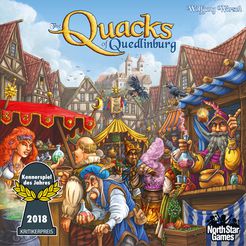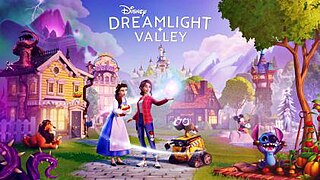Related Research Articles

The Sims is a social simulation video game developed by Maxis and published by Electronic Arts in 2000. The game allows players to create and control virtual people, called "Sims", and manage their daily lives in a suburban setting. The game features an open-ended gameplay, where players can choose their own goals and objectives, and customize their Sims' appearance, personality, skills, relationships, and environment. A series of expansion packs were also released that add new content and features to the game, such as new careers, items, locations, and scenarios.

A city-building game, or town-building game, is a genre of simulation video game where players act as the overall planner and leader of a city or town, looking down on it from above, and being responsible for its growth and management strategy. Players choose building placement and city management features such as salaries and work priorities, and the city develops accordingly.
Dwarf Fortress is a construction and management simulation and roguelike indie video game created by Bay 12 Games. Available as freeware and in development since 2002, its first alpha version was released in 2006 and received attention for being a two-member project surviving solely on donations.

SimCity is a city-building and urban planning simulation massively multiplayer online game developed by Maxis Emeryville and published by Electronic Arts. Released for Microsoft Windows in early March 2013, it is a reboot of the SimCity series, and is the first major installment since the release of SimCity 4 a decade before. A macOS version was released on August 29, 2013.
Social simulation games are a subgenre of life simulation game that explore social interactions between multiple artificial lives. Some examples include The Sims and Animal Crossing series.

A sandbox game is a video game with a gameplay element that provides players a great degree of creativity to interact with, usually without any predetermined goal, or alternatively with a goal that the players set for themselves. Such games may lack any objective, and are sometimes referred to as non-games or software toys. More often, sandbox games result from these creative elements being incorporated into other genres and allowing for emergent gameplay. Sandbox games are often associated with an open world concept which gives the players freedom of movement and progression in the game's world. The term "sandbox" derives from the nature of a sandbox that lets people create nearly anything they want within it.

The Sims 4 is a free-to-play social simulation game developed by Maxis and published by Electronic Arts. It is the fourth major title in The Sims series, following The Sims 3 (2009). The game was released in North America on September 2, 2014, for Windows, an OS X version was released in February 2015, and PlayStation 4 and Xbox One versions were released in November 2017. The game was moved to a free-to-play model on October 18, 2022, monetized by the purchase of various paid downloadable content packs that have been developed since its release.

Banished is a city-building video game developed by Shining Rock Software. It was released for Windows on February 18, 2014. The game focuses on careful resource management and survival as an isolated and growing society. Its gameplay can be compared with economic theory on sustainability and optimization. Banished received mixed reviews on release, with reviewers praising graphics and difficulty early in the game, but criticizing a lack of feedback for player actions and lower emphasis on survival as the city grows.

Book of Potions is an augmented reality video game developed by London Studio in conjunction with J. K. Rowling and Warner Bros. Interactive Entertainment as a companion to the Harry Potter series and as a follow-up to the Wonderbook's debut title, Book of Spells. It was released in Europe on 15 November 2013 and North America on 12 November 2013, alongside Diggs Nightcrawler and Walking with Dinosaurs.

Monaco: What's Yours Is Mine is a 2013 stealth video game developed by Pocketwatch Games in which players, alone or cooperatively, perform heists and robberies. Players choose from eight characters, each of whom has a unique and beneficial skill, such as the ability to change appearance or tunnel through walls. Monaco's single-player story is told in four acts from perspectives of different characters. The cooperative mode lets up to four players play together in different locations.

Celeste is a 2018 platform game developed and published by indie studio Maddy Makes Games. The player controls Madeline, a young woman with anxiety and depression who aims to climb Celeste Mountain. During her climb, she encounters several characters, including Part of You a personification of her self-doubt who attempts to stop her from climbing the mountain.
An immersive sim (simulation) is a video game genre that emphasizes player choice. Its core, defining trait is the use of simulated systems that respond to a variety of player actions which, combined with a comparatively broad array of player abilities, allow the game to support varied and creative solutions to problems, as well as emergent gameplay beyond what has been explicitly designed by the developer. This definition is not to be confused with game systems which allow player choice in a confined sense or systems which allow players to easily escape consequences of their choices.

Cook, Serve, Delicious! is a restaurant simulation video game released in 2012, developed and published by Vertigo Gaming. The player controls the menu and running of a restaurant, with in game currency being awarded by correctly filling customer orders. Directed by David Galindo, it had art from Sara Gross and music from Jonathan Geer. The game was released on 5 October 2012, for PC, and for Steam after a period on Steam Greenlight from 8 October 2013. It was later ported to iOS and Android. Cook, Serve, Delicious! drew inspiration from Japan-only 1999 game Ore no Ryouri.

Halcyon 6: Starbase Commander is a strategy video game and turn-based tactical RPG hybrid developed and published by Massive Damage. It was released on September 8, 2016 for Windows, OS X and Linux, and October 19, 2017 for iOS. Taking place in a science fiction setting, the player must reclaim and rebuild the derelict ancient space station Halcyon 6 in order to stop an impending alien invasion of Earth.

The Quacks of Quedlinburg, also known as Quacksalber, is a board game designed by Wolfgang Warsch and first published by Schmidt Spiele in 2018. After winning the Kennerspiel des Jahres in 2018, an English version of the game was released by North Star Games.

Disney Dreamlight Valley is a 2023 life simulation adventure game developed by Gameloft Montreal and published by Gameloft. The game has players tend to a magical valley populated by various Disney and Pixar characters who previously underwent a curse that caused them to lose their memories of their lives in the valley.

Sucker for Love: First Date is a parodic dating sim and horror-themed visual novel developed by indie developer Joseph "Akabaka" Hunter, and published by DreadXP. It was released on January 20, 2022, for Windows and December 19, 2022, for Nintendo Switch. The game revolves around a young man who obtains a pink version of the Necronomicon, and begins performing rituals to summon moe anthropomorphic beings from the Cthulhu Mythos, such as Ln'eta, a female version of Cthulhu, sacrificing his body parts and ultimately threatening the world with annihilation. The game received generally favorable reviews from critics, who praised its writing, voice acting and artwork, but criticized its short length, glitches, and low emphasis on romance for a dating sim. A sequel further exploring the Cthulhu Mythos, Sucker for Love: Date to Die For, was announced later in 2022.
Little Witch in the Woods is an upcoming indie life simulation video game developed and published by South Korean studio Sunny Side Up. It launched in early access in mid-2022 for Windows, Xbox One and Xbox Series X/S. The game follows Ellie, an apprentice witch who lives in a forest, wears a talking witch hat named Virgil, and is able to fish and brew potions. She must complete her training by helping nearby villagers and meeting other witches.

Potion Craft is a video game created by Russian independent developer niceplay games and published by tinyBuild in 2022. Described as an "atmospheric management simulator set in a medieval fantasy world", Potion Craft is a management simulation game in which players operate a store producing and selling potions using alchemical ingredients. Upon release, Potion Craft received praise from critics for its novel and intuitive crafting mechanics, and was nominated for several awards at the 2023 Independent Games Festival.

A walking simulator, shortened walking sim, is an adventure game that consists primarily of movement and environmental interaction. They generally do not have combat mechanics, traditional win/lose scenarios, and sometimes include puzzle elements. While these video game elements originated in the 1980s, people online began pejoratively referring to new games as walking simulators in the late 2000s, notably with Dear Esther. The term was eventually used less pejoratively and adopted by gamers, while still negatively perceived by some game developers and negative gameplay connotation remains. Other descriptors have been commonly used for games of such style, including empathy, narrative and exploration game. Such games are often a hallmark of art games, but some mainstream games have been described as having walking simulator elements.
References
- 1 2 3 "Potionomics". www.metacritic.com. Retrieved October 29, 2023.
- 1 2 Packwood, Lewis (October 9, 2022). "Potionomics review – colourful adventures in magical capitalism". The Guardian .
- 1 2 3 4 5 Sykes, Tom (October 14, 2022). "Potionomics review". pcgamer. Retrieved October 29, 2023.
- 1 2 3 Richardson, Bob (October 18, 2022). "Potionomics Review". RPGFan. Retrieved October 29, 2023.
- 1 2 3 4 Bea, Robin (October 14, 2022). "Potionomics review: The best sim game of 2022 is worth losing sleep over". Inverse .
- ↑ ablipinthematrix (2023-10-06). "Play It By Ear #9 – Potionomics". The Avocado. Retrieved 2024-06-12.
- ↑ Richardson, Liam (February 7, 2023). "Potionomics makes chucking a bunch of teeth into a cauldron feel great". Rock Paper Shotgun . Retrieved October 29, 2023.
- ↑ Castle, Katharine (March 24, 2023). "The games of 2022, according to this year's GDC and IGF Award winners". Rock Paper Shotgun .